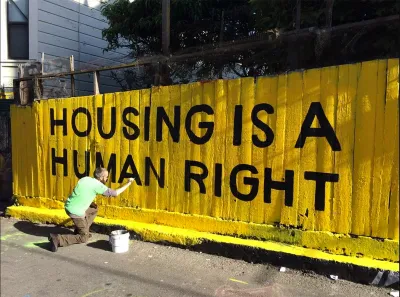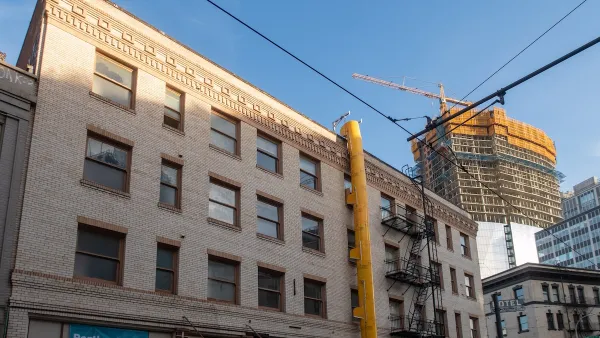Is housing a human right? A law professor shares six reasons why it should be, from its role in protecting other rights to global recognition and U.S. legal traditions. As public support grows, could housing be the next right written into law?

Is housing a human right? While the U.S. has yet to recognize it as one, a growing movement argues that safe, stable housing is essential to protecting other fundamental rights. In a piece in Shelterforce, a law professor breaks down six compelling reasons why housing should — and one day might — be considered a human right in the United States.
- Housing is foundational to other rights. Without a home, individuals struggle to exercise their rights to free speech, privacy, and political participation. Criminalizing homelessness further restricts these freedoms, making housing security essential for true civil liberty.
- The U.S. has historically supported housing as a right. From President Franklin D. Roosevelt’s proposed “Second Bill of Rights” to the 1949 Housing Act, there’s a long American tradition of advocating for housing as a basic need.
- Most of the world already recognizes housing as a human right. Nearly every country—except the U.S. and a few others—has signed international agreements affirming the right to adequate housing. Many have even enshrined it in their constitutions.
- Public opinion overwhelmingly supports it. Surveys show that most Americans believe housing is a human right and support government efforts to ensure access to affordable homes. This public sentiment often shapes future laws and policies.
- Faith and moral traditions call for housing justice. Across religious and ethical traditions, providing shelter is seen as a fundamental moral duty, reinforcing the idea that housing should be a guaranteed right.
- U.S. laws evolve. Just as the Supreme Court has reversed past rulings on civil rights, there’s precedent for expanding legal interpretations to include housing as a fundamental right.
The debate continues, but history shows that calling for rights — before they are legally recognized — can drive real change. Could housing be the next right written into U.S. law? Read the full story at the link below or listen to it here.
FULL STORY: Six Reasons Why Housing Is a Human Right

Planetizen Federal Action Tracker
A weekly monitor of how Trump’s orders and actions are impacting planners and planning in America.

Maui's Vacation Rental Debate Turns Ugly
Verbal attacks, misinformation campaigns and fistfights plague a high-stakes debate to convert thousands of vacation rentals into long-term housing.

Restaurant Patios Were a Pandemic Win — Why Were They so Hard to Keep?
Social distancing requirements and changes in travel patterns prompted cities to pilot new uses for street and sidewalk space. Then it got complicated.

In California Battle of Housing vs. Environment, Housing Just Won
A new state law significantly limits the power of CEQA, an environmental review law that served as a powerful tool for blocking new development.

Boulder Eliminates Parking Minimums Citywide
Officials estimate the cost of building a single underground parking space at up to $100,000.

Orange County, Florida Adopts Largest US “Sprawl Repair” Code
The ‘Orange Code’ seeks to rectify decades of sprawl-inducing, car-oriented development.
Urban Design for Planners 1: Software Tools
This six-course series explores essential urban design concepts using open source software and equips planners with the tools they need to participate fully in the urban design process.
Planning for Universal Design
Learn the tools for implementing Universal Design in planning regulations.
Heyer Gruel & Associates PA
JM Goldson LLC
Custer County Colorado
City of Camden Redevelopment Agency
City of Astoria
Transportation Research & Education Center (TREC) at Portland State University
Jefferson Parish Government
Camden Redevelopment Agency
City of Claremont





























